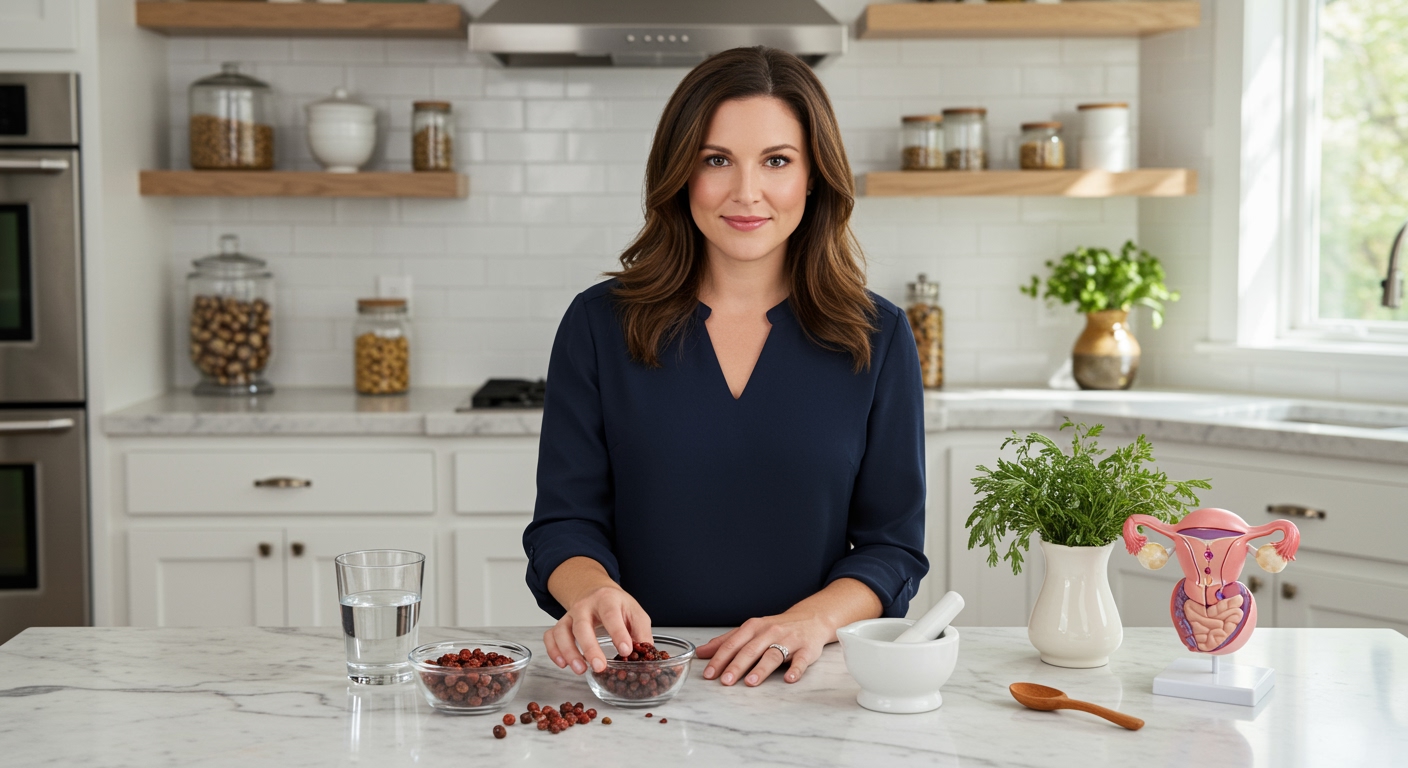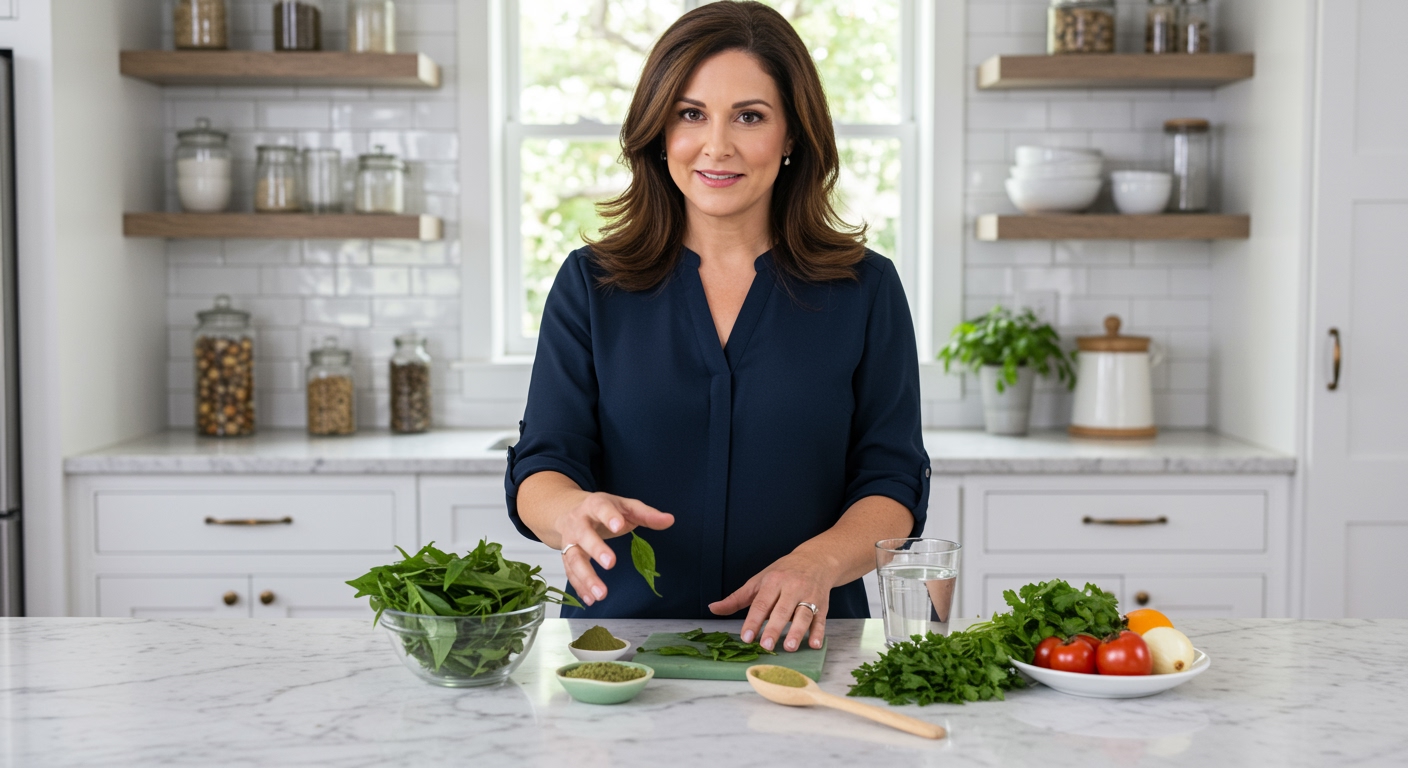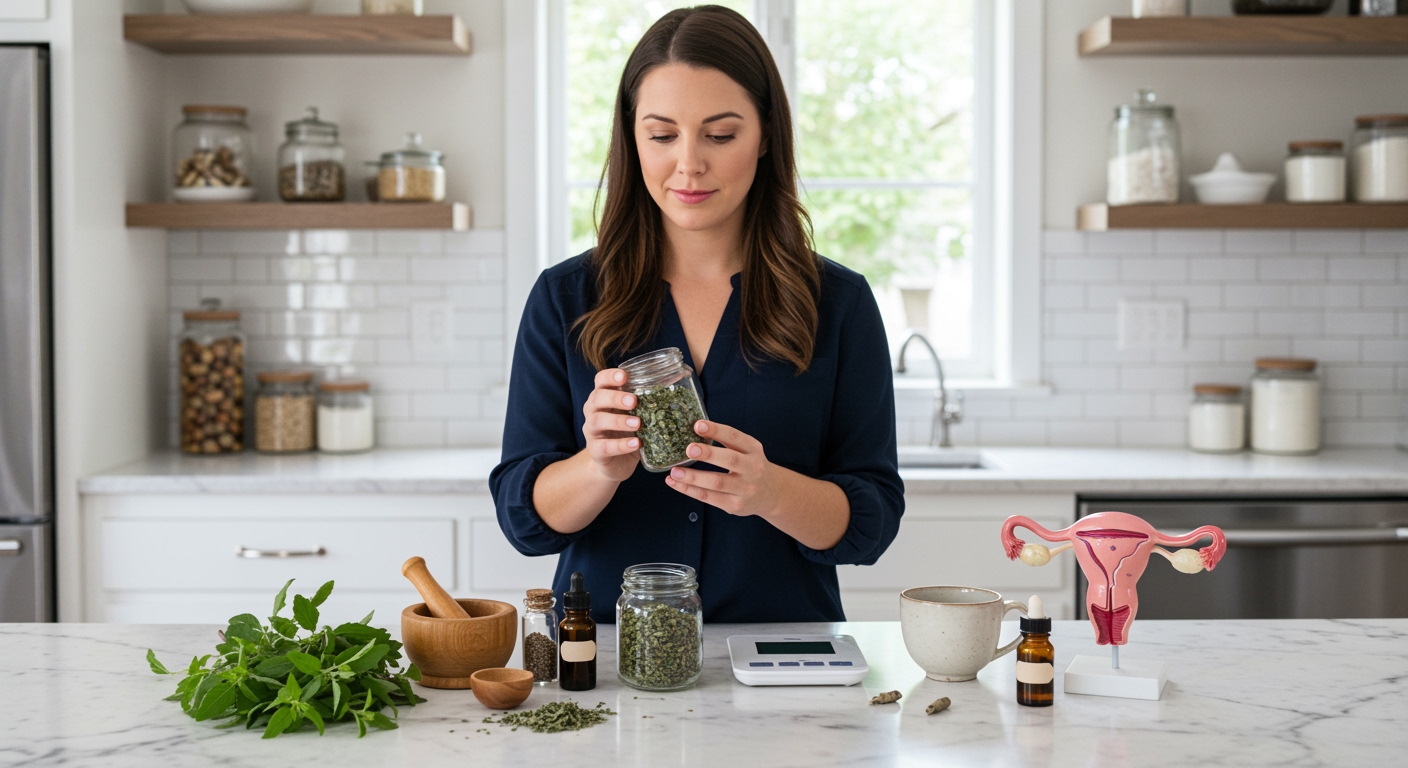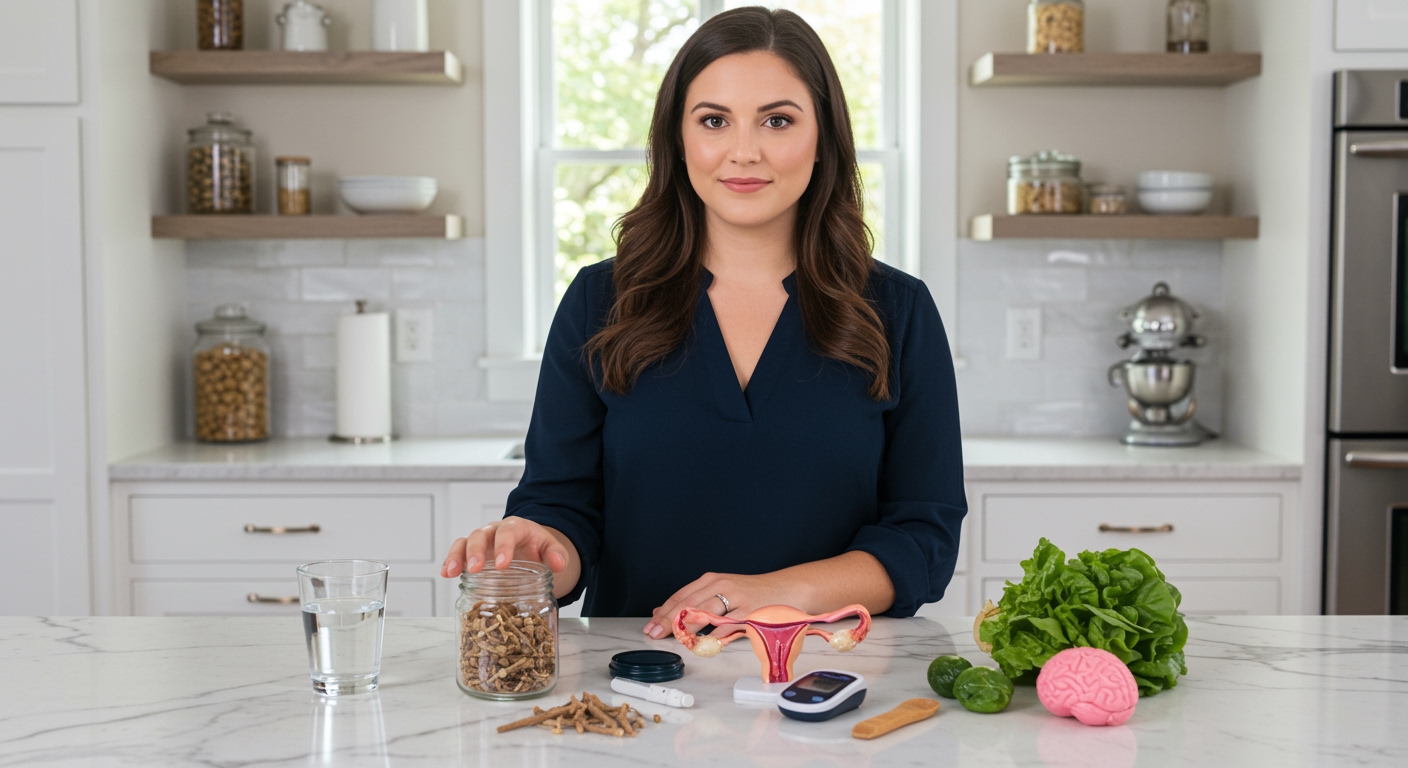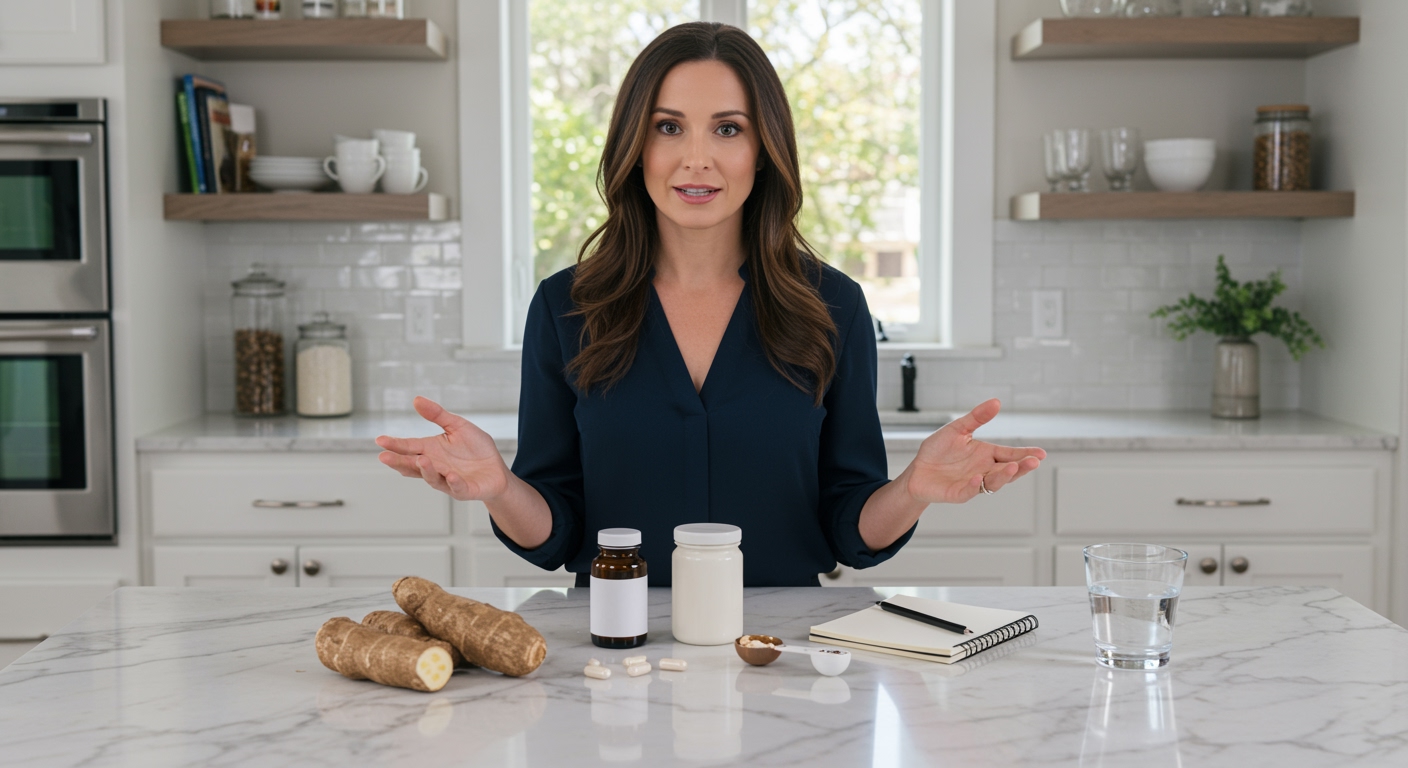✪ Key Takeaway: Chaste tree may help some PCOS symptoms but lacks strong scientific evidence and can worsen certain hormonal imbalances.
Introduction
You walk into a health store and see bottles of chaste tree supplements promising to fix your PCOS symptoms naturally.
Maybe you are wondering if this ancient herb could finally give you the hormonal balance you have been searching for without harsh medications.
Hi, I am Abdur, your nutrition coach and today I am going to explain the real truth about chaste tree for PCOS based on current scientific evidence.
What Exactly Is Chaste Tree And How Does It Work?
Chaste tree, also known as Vitex agnus-castus, is a Mediterranean shrub that produces small purple berries.
Traditional healers have used these berries for over 2,000 years to treat various reproductive issues in women.
The herb works by influencing your pituitary gland, which controls the production of several important hormones.
Specifically, chaste tree appears to reduce prolactin levels while potentially increasing luteinizing hormone production.
This hormonal shift could theoretically help with progesterone production, which many women with PCOS lack.
However, the mechanism is complex and scientists still do not fully understand how chaste tree affects different women.
✪ Fact: Chaste tree contains compounds called iridoids and flavonoids that may influence dopamine receptors in your brain.
Does Science Support Chaste Tree For PCOS Symptoms?
The research on chaste tree for PCOS is surprisingly limited and mixed.
Most studies focus on general menstrual irregularities rather than PCOS specifically.
A few small studies suggest chaste tree might help with cycle regularity in some women.
However, these studies often lack proper control groups and include very few participants.
One concern is that chaste tree might actually worsen symptoms in women with low estrogen levels.
Since PCOS presents differently in different women, what helps one person might harm another.
The lack of standardized dosing and quality control in supplements makes research even more challenging.
✪ Note: Most chaste tree studies last only 3-6 months, which may not be long enough to assess true effectiveness.
What Are The Potential Benefits And Risks?
Some women report improved menstrual regularity after taking chaste tree for several months.
Others notice reduced breast tenderness and mood swings related to their cycle.
However, these benefits are mostly based on personal reports rather than rigorous scientific studies.
The risks include potential interactions with hormonal medications and birth control pills.
Some women experience digestive upset, headaches, or skin reactions when taking chaste tree.
More concerning is that chaste tree might disrupt your natural hormone production if used incorrectly.
Women with certain types of PCOS, particularly those with hypothalamic dysfunction, might see their symptoms worsen.
✪ Pro Tip: Always get comprehensive hormone testing before starting any herbal supplement for PCOS management.
Should You Try Chaste Tree For Your PCOS?
The decision to try chaste tree should depend on your specific PCOS type and symptoms.
Women with high prolactin levels might benefit more than those with insulin resistance as their primary issue.
If you decide to try it, work with a healthcare provider who understands both PCOS and herbal medicine.
Start with the lowest effective dose and monitor your symptoms carefully for at least three months.
Remember that lifestyle changes like proper nutrition and regular exercise have much stronger evidence for PCOS management.
Chaste tree should never replace proven treatments but might serve as an additional support tool for some women.
✪ Note: Quality varies dramatically between chaste tree supplements, so choose products from reputable manufacturers with third-party testing.
The Bottom Line
Chaste tree remains an unproven treatment for PCOS despite its long history of traditional use.
Hope without evidence is just expensive wishful thinking, and your health deserves better than guesswork.
I would love to hear about your experiences with chaste tree or any questions you have about natural PCOS management in the comments below.
References
At NutritionCrown, we use quality and credible sources to ensure our content is accurate and trustworthy. Below are the sources referenced in writing this article:
- PMC: Vitex agnus-castus for premenstrual syndrome
- Cleveland Clinic: Chasteberry Benefits and Risks
- PMC: Herbal Medicine for PCOS
- Frontiers: Natural Products for PCOS Treatment
